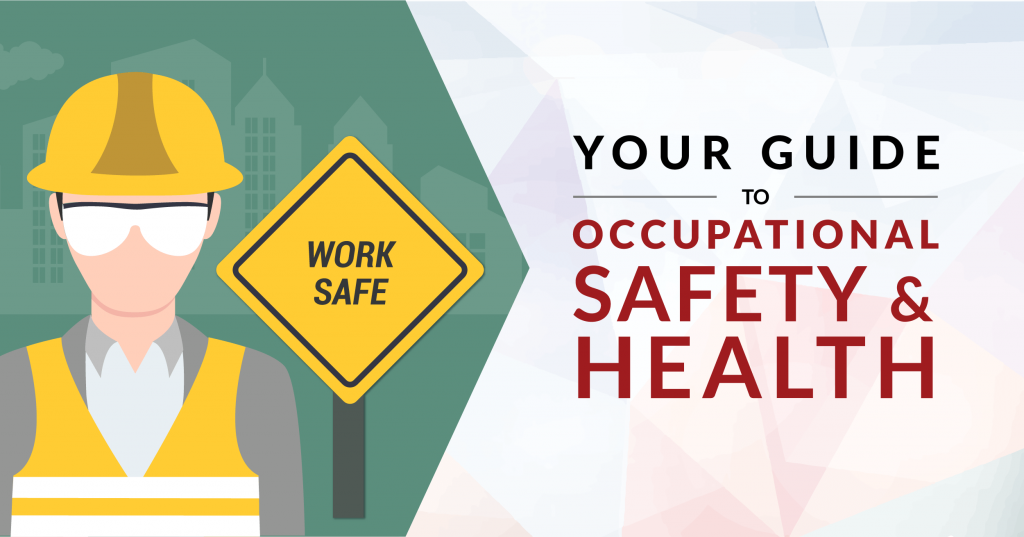4 Things We Bet You Didn’t Know About Occupational Health and Safety (OSH)
Do you know what OSH is? Have you ever heard of it before? Here are 4 things we bet you didn’t know about.
Published 10 Sep 2021

The sinking of the Titanic in 1912, the Chernobyl disaster in 1986 and the Beirut explosion in 2020. What do all these things have in common?
Taking the lives of thousands, these are all disasters that happened because of the lack of safety precautions and practices in the workplace.
If you’re wondering who specifically oversees this area, this is where the OSH or Occupational Safety and Health field comes in. Here are 4 things you probably didn’t know about the fascinating field of OSH.
#1. OSH doesn’t just cover physical safety

What do you think OSH is about? If your answer is that OSH is concerned with making sure that you are safe at the workplace and preventing workplace incidents, you are correct.
But there’s more to it than that.
OSH is not just about the physical safety of the workers. According to the International Labour Organization (ILO), OSH is concerned with the health of the “whole person”, including their social, mental and physical well-being.
So while OSH regulations were initially formed to address health hazards in the form of physical (e.g. hazardous machinery and noise), chemical (e.g. carcinogens, immune agents) and biological (e.g. viruses, bacteria, toxins), the field now covers psychosocial hazards too such as stress, strain and fatigue that may impact the mental and emotional well-being of workers.
#2. OSH is highly in demand in Malaysia

You may not hear about it much but the truth is that OSH jobs are in demand in Malaysia. In fact, it has consistently been in TalentCorp’s Critical Occupations List year in year out since 2015.
A gap in specialised certifications in the industry is contributing to this shortage. Specifically, occupational safety and health managers require either Green Book or Yellow Book certifications from the Department of Occupational Safety and Health (DOSH), which many are lacking. In addition, the role also calls for detailed analytical skills to identify and investigate non-compliance and unsafe acts, conditions and hazards.
Some of the top sectors that are looking for occupational health and safety officers include the manufacturing, construction, mining and quarrying fields.
Apply for university with EduAdvisor
Secure scholarships and more when you apply to any of our 100+ partner universities.
Start now#3. It's a highly regulated field

Part of the reason why there still not that many employed OSH officers is because it’s a highly regulated field. After all, you will be in charge of people’s health and safety. That is a big deal.
One of the main jobs in the field is the Safety and Health Officer (SHO) role. In order to become a registered SHO in Malaysia, you have to pass a number of requirements set by the Department of Occupational Health and Safety (DOSH). Certain exceptions may apply depending on where you get your OSH education but you will still have to obtain at least 3 years of relevant working experience before you can apply for this certification.
This is no reason to be intimidated. As long as you follow the pathway we outlined in our OSH course guide, you will be ready to go.

#4. It’s a versatile field

Workplace safety is a big issue in many industries across Malaysia.
In addition to the top sectors that are constantly on the lookout for OSH officers (e.g. manufacturing, construction, mining), you can also explore jobs in oil and gas, transportation, agriculture and even hospitality. Moreover, since modern OSH doesn’t solely focus on physical safety, there are opportunities for you too in large organisations that hire many employees.
So while OSH may seem like a niche field of study, it’s an area that’s applicable to plenty of industries.
Are you surprised by any of these facts?
OSH is an exciting field rife with opportunities but not many people know what it’s truly about. We hope this article has cleared some of the questions you may have about this field.



